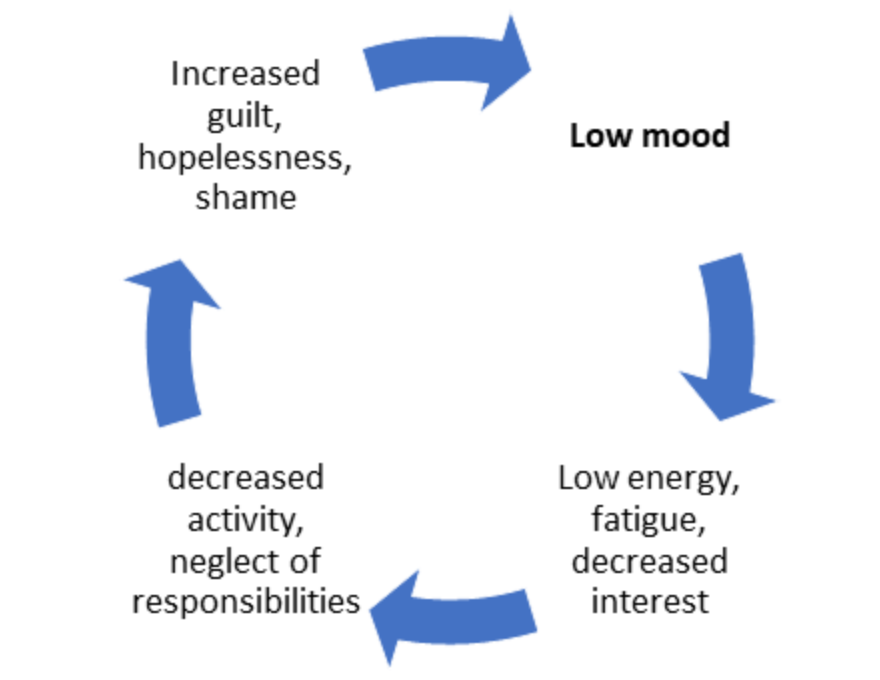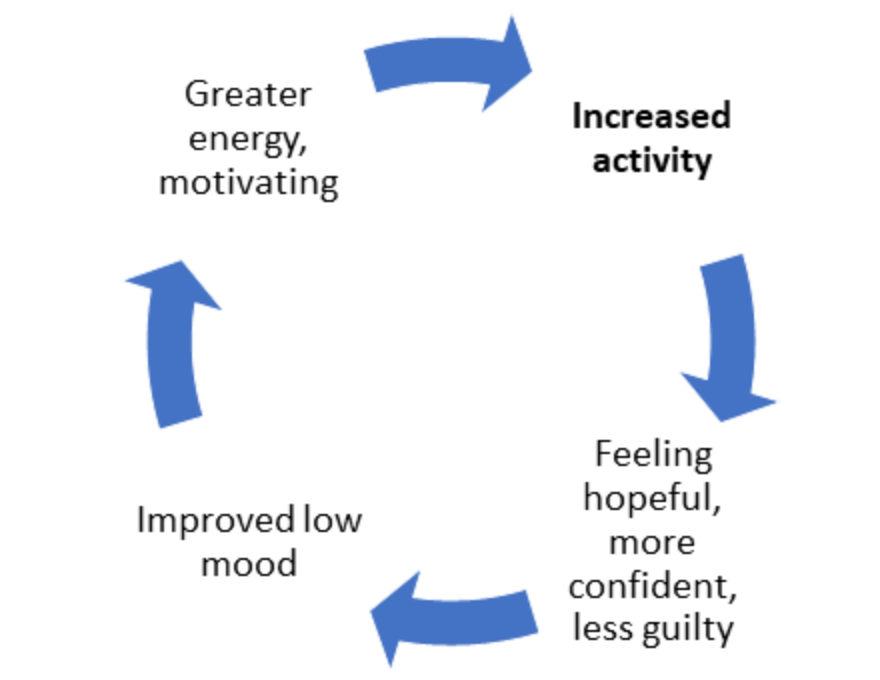What Could be Keeping You from Feeling Better?
What Could be Keeping You from Feeling Better?
A lack of energy or motivation can lead to you doing less, not completing your daily tasks and letting other people make decisions for you. You may notice that you become less and less active, don’t go out much, and neglect your favourite activities. This is the vicious cycle of low mood. It looks like this:

When your activity levels decrease, you may feel even less motivated. And when you stop doing the things that normally give you pleasure, you’ll miss out on the positive experiences and the feelings attached to them.
You may also find that things start to pile up when you stop doing your daily tasks. You might feel guilty, overwhelmed, ashamed, or think that you’re a failure, and all of these things will combine to lower your mood.
How can you break the cycle?
Increasing your activities, especially activities that are pleasurable, can help improve your mood. Being more active will help you feel less tired and will help you think more clearly.
Breaking the vicious cycle of low mood looks like this:

















